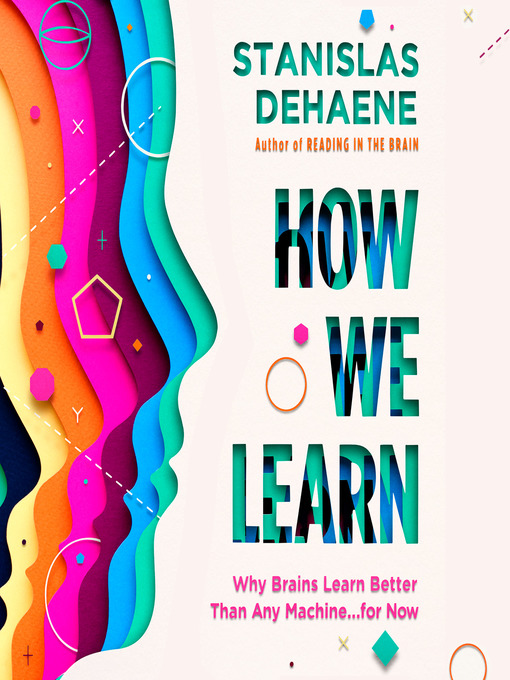How We Learn
Why Brains Learn Better Than Any Machine . . . for Now
An illuminating dive into the latest science on our brain's remarkable learning abilities and the potential of the machines we program to imitate them
The human brain is an extraordinary learning machine. Its ability to reprogram itself is unparalleled, and it remains the best source of inspiration for recent developments in artificial intelligence. But how do we learn? What innate biological foundations underlie our ability to acquire new information, and what principles modulate their efficiency?
In How We Learn, Stanislas Dehaene finds the boundary of computer science, neurobiology, and cognitive psychology to explain how learning really works and how to make the best use of the brain’s learning algorithms in our schools and universities, as well as in everyday life and at any age.
-
Creators
-
Publisher
-
Release date
January 28, 2020 -
Formats
-
OverDrive Listen audiobook
- ISBN: 9780593165898
- File size: 288442 KB
- Duration: 10:00:55
-
-
Languages
- English
-
Reviews
-
Publisher's Weekly
October 28, 2019
Dehaene (Consciousness in the Brain), a professor of experimental psychology at the Collège de France, devotes this detailed, sometimes hard-going, but stimulating study to the science of learning. The first half largely concerns brain physiology, touching on, among other subjects, how learning can physically change the brain, such as by thickening the cortex. Dehaene also refutes the idea of the “blank slate” infant brain, noting that “even a baby... encodes the external world using abstract and systematic rules—an ability that eludes... conventional artificial neural networks.” The book’s second, less technical and more widely accessible half explores the “four pillars” of learning: attention, active engagement, error feedback, and consolidation of information (for which REM sleep is especially key) and discusses how enjoyment can assist learning—Dehaene notes that laughter seems to enhance curiosity and memory. While calling for more research into the field, he issues his most potentially controversial pronouncement, at least for neurodiversity advocates: “We all face similar hurdles in learning and the same teaching methods can surmount them.” At times not an easy book to comprehend, it will nonetheless be a richly instructive one for educators, parents, and others interested in how to most effectively foster the pursuit of knowledge. Agent: Max Brockman, Brockman, Inc.
-
Loading
Why is availability limited?
×Availability can change throughout the month based on the library's budget. You can still place a hold on the title, and your hold will be automatically filled as soon as the title is available again.
The Kindle Book format for this title is not supported on:
×Read-along ebook
×The OverDrive Read format of this ebook has professional narration that plays while you read in your browser. Learn more here.

